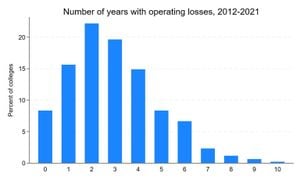Spain, Portugal, and Morocco will co-host the 2030 FIFA World Cup, marking a historic moment for global football and signaling significant changes for the tournament's future. The announcement came during an Extraordinary FIFA Congress held via video conference, where representatives from all 211 FIFA member associations unanimously approved the joint bid.
This decision positions Morocco as the second African nation to ever host the World Cup, following South Africa's groundbreaking role as host during the 2010 tournament. It reflects not only Morocco's growing influence within the football sphere but also the continent's increasing prominence on the world stage. FIFA rates the joint bid highly, scoring it 4.2 out of 5, which demonstrates the organizers' ability to meet and exceed hosting requirements.
While Morocco will play a central role during the tournament, the opening games are scheduled to occur on South American soil. This aspect is particularly poignant as the tournament will celebrate the 100th anniversary of the first World Cup hosted by Uruguay back in 1930. This dual-continent hosting initiative aims to unite different cultures through the shared passion of football.
During the press event announcing the successful bid, Fernando Gomes, the President of the Portuguese Football Federation (FPF), emphasized the collaborative spirit of the countries involved, showcasing the unity between them and their shared ambition for football. Each nation involved has invested heavily in upgrading football infrastructure, ensuring readiness for this prestigious event.
The support for Morocco’s inclusion highlights the growing acceptance of African nations as viable hosts for premier sporting events, particularly as the infrastructure and organizational capabilities improve on the continent. Investments have also been made not just for the World Cup but for football development programs intended to leave lasting legacies for local communities.
The excitement surrounding the tournament's announcement resonates deeply throughout the participating nations. Football fans are already buzzing with anticipation, envisioning the best of world football descending upon their cities and celebrating the game they love. With the 2026 World Cup set to be jointly hosted by the United States, Canada, and Mexico, the 2030 edition promises to be another milestone, creating pathways for future tournaments, particularly within Africa.
Yet, as excitement grows, there are also critiques of FIFA’s decisions, particularly concerning the upcoming 2034 World Cup, which is slated to take place in Saudi Arabia. Critics argue there are ethical issues around Saudi Arabia's human rights record and are questioning the governance of FIFA. This dynamic creates conversations around what it means to host such influential events and who is deemed acceptable as hosts due to their countries' political and social circumstances.
Looking back at history, this isn't the first time the World Cup has ventured across continents. Similar strategies have been previously explored, but never has FIFA decided to officially sanction two continents participating simultaneously for the World Cup. This innovative approach may pave the way for future tournaments to embrace similar structures, potentially enhancing global unity through sport.
All eyes now turn toward these three nations as they prepare for this monumental event. With the backing of their governments and communities, they are gearing up for the colossal task of hosting teams from around the world and thousands of fans whose focus will be on winning football's most prestigious trophy.
Morocco's role is particularly notable as it will showcase the continent’s passion for football to the global audience. The nation has set ambitious goals to not only host matches but to use this opportunity to lift the profile of football across Africa, thereby inspiring the next generation of players and fans alike.
Whether it's thrilling World Cup matches or the accompanying cultural exchanges, the anticipation of the 2030 World Cup fosters hope and unity. By bringing together diverse nations to celebrate football, it reflects the sport's ability to bridge divides and create shared experiences among people from various cultures.
While the roads to the tournament’s commencement are still paved with challenges, the spirit of cooperation between Spain, Portugal, and Morocco sets the stage for what many hope will be one of the most memorable World Cup experiences ever. Set for kick-off, this global festival of football begins its countdown now, one save, shot, and goal at a time.



